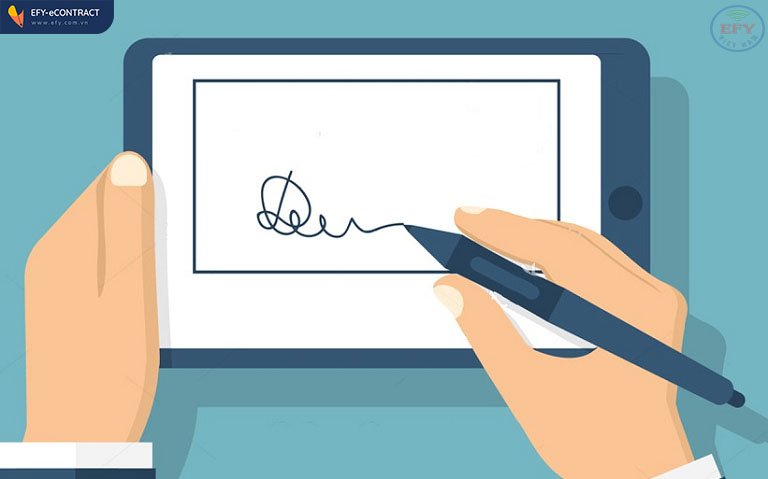Legal basis
- Law on Electronic Transactions 2005
- Decree 52/2013/ND-CP on e-commerce
- Decree 85/2021/ND-CP amending Decree 52/2013/ND-CP on e-commerce
- Decree 130/2018/ND-CP guiding the Law on Electronic Transactions on digital signatures and digital signature authentication services
Content
A contract usually needs to be signed by the parties to confirm the parties’ agreement to the terms of the contract. The signature in the contract must first be a symbol expressing the wishes of the parties. From a legal perspective, a signature in a contract is the basis for determining that desire. In addition to expressing the wishes of the subjects, the signature has two other purposes: first, it can be used to identify the signer; second, the signature can be used as proof of the integrity of a document (for example, in a long document, the signature appears not only on the last page but also on every page, this means to ensure the contract is a unified whole, against changes in any part of the contract, thereby ensuring the integrity of the document).
For an electronic contract, the creation of a signature or stamp will not be possible as for a written contract, which will be signed by an electronic signature. If a written contract is usually associated with a handwritten signature, an electronic contract is associated with an electronic signature. Electronic signature is a signature created in the form of words, letters, numbers, symbols, sounds or other forms by electronic means, attached or logically combined with data messages. data message, capable of confirming the person signing the data message and confirming that person’s consent to the content of the signed data message (Clause 1, Article 21 of the Law on Electronic Transactions 2005).
In the conclusion of electronic contracts, the function of authentication and integrity assurance is very important. Especially, in the context that electronic transactions are automated and the technical and technological systems of electronic transactions are easily modified, there is a need for a way to ensure the identity of the offeror and the beneficiary. offer to enter into an electronic contract, as well as the integrity of the data message is essential. There are many different types of digital signatures, which can be a name placed at the end of a data message, a snapshot of the handwritten signature attached to the data message, and a secret code capable of identifying the sender of the message. data messages… among them, there is a secure electronic signature issued by a trusted e-signature certification service provider, or a type of electronic signature that does not guarantee security due to being self-created by the transaction party. From a legal perspective, such electronic signatures must be recognized in order to facilitate the conclusion of electronic contracts. The problem is that the law must provide criteria to determine and ensure the legal value of electronic signatures.
The question is which electronic signature guarantees the same functionality as a traditional signature while preventing signature forgery, authenticating the signer of the data message, and ensuring the integrity of the data message after signing. Unlike hand-signed signatures, the use of electronic signatures poses the problem of needing to meet technological and legal requirements, that is, to ensure that electronic signatures are used securely and transparently. express the clear will of the parties regarding the information contained in the data message. So how to identify the electronic signature, or in other words, what measures should be taken so that the parties can identify the partner’s electronic signature. In this regard, it is necessary to have some technical way or an intermediary organization to verify the authenticity and ensure the reliability of the electronic signature. This is a problem that does not occur when concluding contracts in the traditional method, but it is very important to pay attention when entering into electronic contracts to ensure safety.
Above is our consultancy about this issue. If you need more detailed advice and answers as well as how to access this service, please contact directly the Deputy Director of Sales: Lawyer Nguyen Duc Trong via hotline: 0912.35.65.75, 0912.35.53.53 or call the free legal consultation hotline 1900.6575 or send a service request via email: info@hongbanglawfirm.com hoặc lienheluathongbang@gmail.com
Wishing you and your family good health, peace and success!
Best regards!


